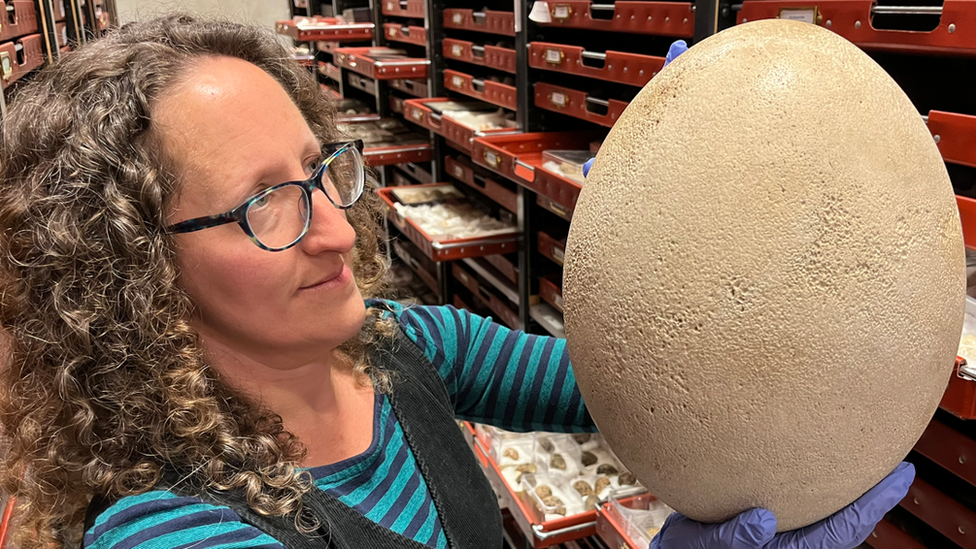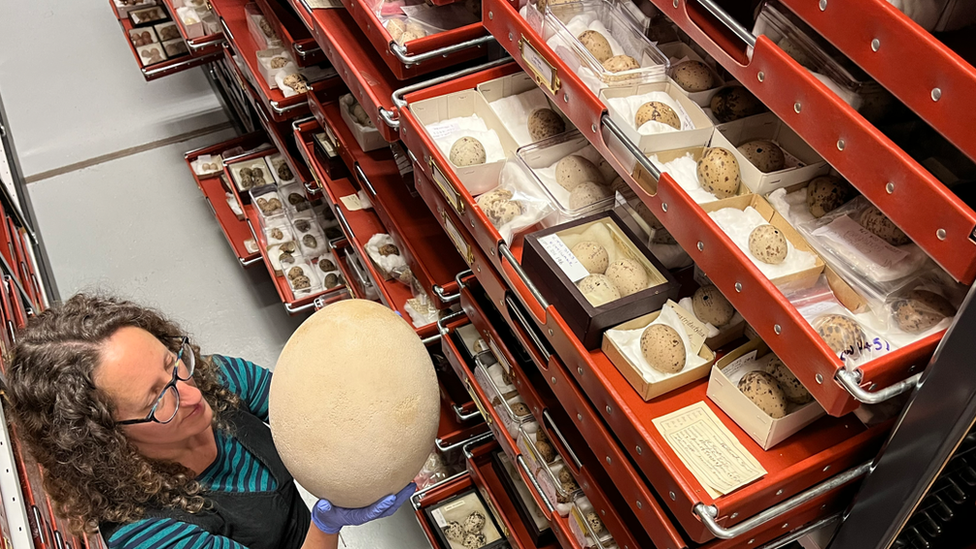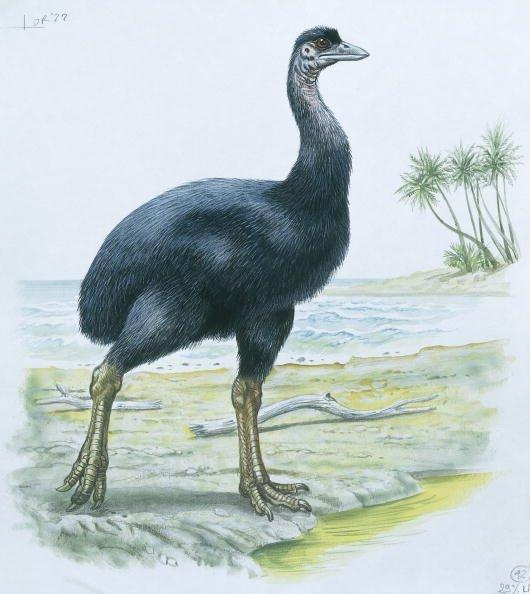Leeds: Visitors to get glimpse of one of world's biggest eggs
- Published

Among the centre's most impressive examples is a rare, complete and colossal egg of the extinct Madagascan elephant bird
One of the biggest eggs in the world is being displayed to the public in Leeds.
The rare specimen is from an extinct Madagascan elephant bird, which laid eggs larger than those of dinosaurs.
It is one of thousands of items kept at the Leeds Discovery Centre, which are being shown to visitors in behind-the-scene tours running over Easter.
Curator Rachel Machin said the centre's vast egg collection included "the staggeringly huge to the impossibly tiny".

The 10ft (3m) tall and flightless Madagascan elephant bird became extinct about 1,000 years ago
According to Leeds Discovery Centre, the egg measures 1ft (30cm) across and is large enough to hold seven ostrich eggs, 180 chicken eggs or 12,000 hummingbird eggs.
Elephant birds were once a common sight in Madagascar. They weighed at least half a tonne, stood at about 3m tall and laid giant eggs, which were bigger even than those of the dinosaurs.
Also part of the collection are goldcrest eggs, believed to be the smallest laid by any British bird.
Ms Machin, Leeds Museums and Galleries curator of natural sciences, said: "Across the animal world, the sheer variety of eggs is truly astonishing, and their beauty has fascinated naturalists for centuries."

The birds had massive legs, taloned claws and a long, powerful neck
The majority of its eggs in the collection came to Leeds museum after the introduction of the Protection of Birds Act in 1954, which restricted the collection of wild bird specimens.
The museum's initial collection was almost destroyed when the original Leeds City Museum, situated on Park Row, was hit during an air raid in March 1941.
Councillor Jonathan Pryor, Leeds City Council's deputy leader and executive member for economy, culture and education, said: "We're extremely fortunate to have such an astonishingly varied collection of objects in Leeds which tells the story of our city and our planet in such detail.
"It's also wonderful that we're able to share those stories with visitors and that our fantastic and dedicated museums team goes to such lengths to make the collection accessible and engaging."

Follow BBC Yorkshire on Facebook, external, Twitter, external and Instagram, external. Send your story ideas to yorkslincs.news@bbc.co.uk, external.